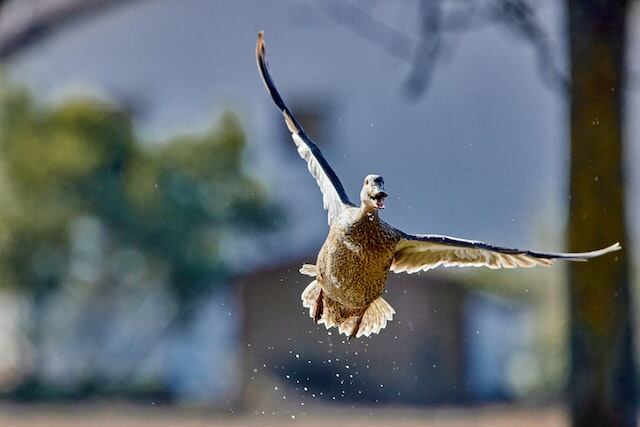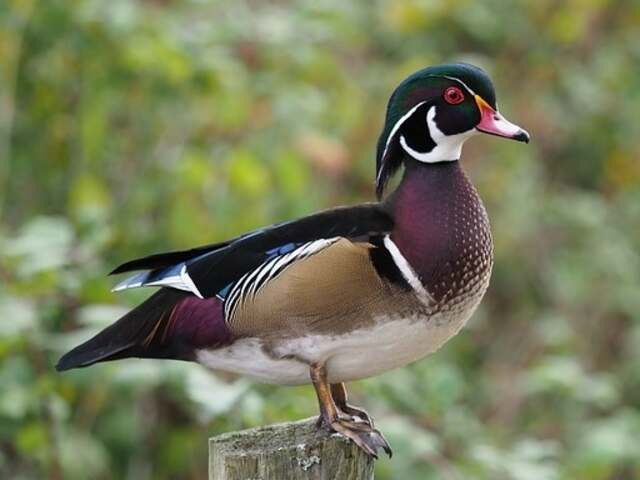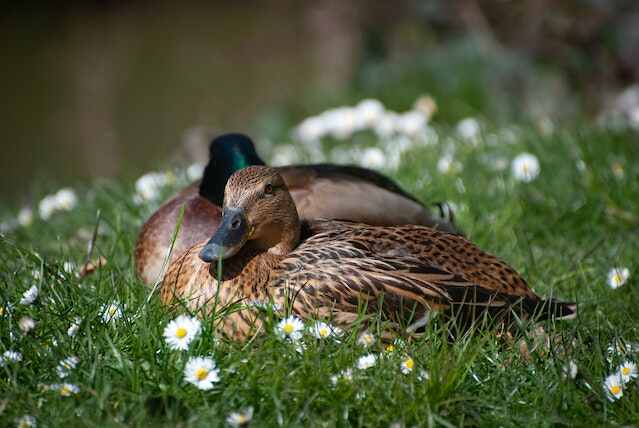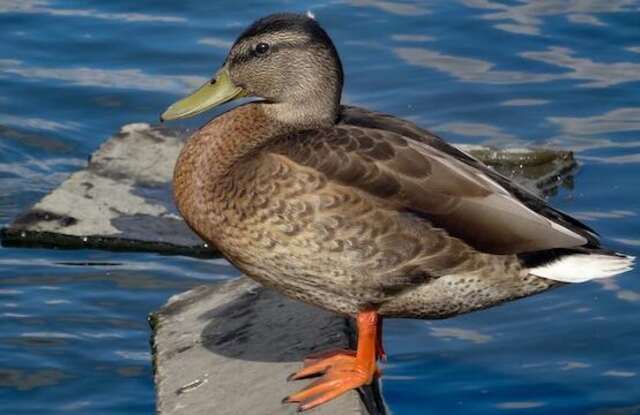Quack, quack! Do ducks eat ticks? Well, you’ll be tickled pink to know that these feathered marvels are nature’s tick-fighting superheroes!
In this delightfully feather-ruffling article, we’ll dive into the world of duck dining habits, uncovering the truth behind their insatiable appetite for those pesky bloodsuckers.
Get ready for a beak-tastic adventure that’ll leave you wanting to flock to the nearest pond! So, do ducks eat ticks? Absolutely! And the reasons why, will make you quack with joy.
Let’s waddle on and discover the fascinating secrets of our quacking tick assassins!
Table of Contents
- 1 The Natural Solution to Controlling Tick Populations: Ducks
- 2 Ducks as Natural Predators of Ticks
- 3 Nutritional Value of Ticks for Ducks
- 4 Other Benefits of Ducks in Tick Control
- 5 Conclusion
- 6 FAQs: Do Ducks Eat Ticks?
- 6.1 Do ducks eat ticks?
- 6.2 Are ducks attracted to ticks?
- 6.3 What other insects do ducks eat?
- 6.4 Can ducks get sick from eating ticks?
- 6.5 Do ducks eat other parasites besides ticks?
- 6.6 Can ducks help control tick-borne diseases?
- 6.7 Do all duck breeds eat ticks?
- 6.8 How many ticks can a duck eat in a day?
- 6.9 Do ducklings eat ticks?
- 6.10 Can ducks be used as a natural tick control method?
- 7 Author
The Natural Solution to Controlling Tick Populations: Ducks
A Brief Overview of Ducks and Their Eating Habits
Ducks are often associated with the iconic image of a pond or lake, gracefully gliding on the water’s surface. However, their role in the ecosystem goes beyond just their aesthetic value.
These aquatic birds are omnivorous creatures, meaning they eat both plants and animals.
Their diet includes small fish, insects, crustaceans, mollusks, seeds and plants. Insects play a significant role in a duck’s diet, as they contain essential nutrients such as protein and fat that ducks need to survive.
For example, mallard ducks have been observed consuming mosquitoes for their protein content. While larger species like the Muscovy ducks consume larger insects like grasshoppers.
The Importance of Controlling Tick Populations
Ticks are a significant problem in many environments worldwide due to their ability to spread diseases such as Lyme disease and Rocky Mountain spotted fever.
According to the Centers for Disease Control and Prevention (CDC), there has been an increase in tick-borne illnesses over the last decade.
Controlling tick populations is crucial not only for human health but also for pet animals, who can also be affected by tick-borne illnesses.
Furthermore, ticks can have an impact on livestock production through infection with diseases such as babesiosis or anaplasmosis.
The Connection between Ducks and Tick Control
Ducks can play an essential role in controlling tick populations naturally. They consume ticks while swimming or grazing near bodies of water, where ticks are commonly found waiting for hosts to pass by.
The use of ducks as natural predators of ticks is gaining popularity among farmers who want to control tick populations without relying on chemical pesticides that may harm other wildlife or contaminate water sources.
In addition to being effective at reducing tick populations naturally, using ducks for tick control can also have other benefits.
By reducing the number of ticks, ducks can help reduce the prevalence of tick-borne illnesses and promote a healthier ecosystem.
Ducks as Natural Predators of Ticks
Types of ticks commonly found in duck habitats
Ticks are a common problem for many animals, including ducks. There are several different species of ticks that can be found in duck habitats, but the most common ones include:
- The black-legged tick, aka: Deer Tick (Ixodes scapularis)
- The American dog tick (Dermacentor variabilis)
- The lone star tick (Amblyomma americanum)
These ticks can carry diseases such as Lyme disease, Rocky Mountain spotted fever, and ehrlichiosis which can be harmful to both humans and wildlife.
How ducks hunt for ticks
Ducks are natural predators of ticks and have a unique way of hunting for them. They use their bills to search through feathers on their bodies and other areas where they cannot preen themselves.
Ducks’ bills have very sensitive nerve endings which allow them to detect even tiny parasites like ticks. Once they locate a tick, they pluck it out with their bill or swallow it whole.
The benefits of using ducks for tick control
Using ducks as natural predators for controlling tick populations has many benefits over traditional methods such as pesticides or insecticides.
Firstly, ducks do not harm other wildlife or the environment like chemicals often do. Secondly, ducks are a more cost-effective method because they require little upkeep compared to using chemicals which must be applied frequently.
In addition, using ducks helps to eliminate specific types of pests that might not be targeted by chemical methods.
For example, some ticks may develop an immunity to certain pesticides over time but would still be targeted by predator birds like ducks.
Furthermore, since ducks consume many insects and larvae in addition to ticks when searching through vegetation or water looking for a food source, they help control additional pests.
Overall, utilizing these feathered friends can provide effective pest management solutions while saving money and protecting the environment.
Nutritional Value of Ticks for Ducks
Ticks are known to be a rich source of protein, and they provide essential amino acids that are not found in other food sources commonly available to ducks.
Ticks contain high levels of fat, making them an excellent source of energy as well.
Additionally, ticks are low in carbohydrates, which makes them a perfect food choice for ducks that mainly require proteins and fats.
Nutritional Content of Ticks
Ticks contain a variety of nutrients that make them an ideal food choice for ducks. They are known to have high levels of vitamins, such as vitamin B12 and iron.
These vitamins play an essential role in the growth and development of ducks. The high iron content in ticks helps boost the blood count in ducks, which is crucial during migration.
Furthermore, ticks contain specific amino acids such as lysine and methionine that are essential for muscle growth and repair.
These amino acids also help with feather formation, which is crucial for maintaining the duck’s body temperature.
How Ducks Digest Ticks
The digestive system in ducks is uniquely designed to handle tough food items such as insects like ticks. The muscular walls present in the gizzard crush hard substances like the exoskeletons of insects into smaller pieces that can be digested easily.
After passing through the gizzard, ticks move into the intestines, where digestive enzymes break down proteins and fats present within them into smaller molecules, so they can be absorbed by cells lining the gut wall.
The Role of Ticks In A Duck’s Diet
While a tick-rich diet may not provide all necessary nutrients required by ducks alone, it plays an important role in supplementing their diets with essential proteins and fats required by growing birds or those preparing for migration.
In general, wild birds consume various types of foods depending on availability across different seasons.
Ticks provide a rich source of proteins and fats that are vital for ducks during seasons when other food sources may not be available.
Eating ticks also helps improve the overall health and fitness of ducks, which is essential for their survival in the wild.
Other Benefits of Ducks in Tick Control
Ducks’ ability to reduce the number of tick hosts
In addition to directly eating ticks, ducks can also indirectly reduce the number of tick hosts.
By foraging for food in areas where ticks are commonly found, such as tall grasses or marshy areas, ducks inadvertently disturb the habitats of small mammals like mice and voles that are common carriers for ticks.
This disruption can make it more difficult for ticks to find a host, which ultimately reduces their population.
Furthermore, by consuming these small mammals as part of their diet, ducks serve as natural predators and help control their populations as well.
This creates a chain reaction that leads to a decrease in the overall tick population.
This is especially important because research shows that white-footed mice and other small mammals carry diseases and play an important role in transmitting Lyme disease.
The impact on the ecosystem when using ducks for tick control
Using ducks for tick control has many benefits beyond just reducing the number of ticks. For one, it is an all-natural solution that does not involve any harmful chemicals or pesticides that could potentially harm other wildlife or the environment.
Additionally, this method does not disrupt the balance of nature like some other methods do because it relies on natural predators instead of introducing foreign species or substances into an ecosystem.
By using ducks for tick control instead of traditional methods like poisons or traps that only target specific species, we can preserve biodiversity by allowing natural ecosystems to function without human intervention.
Comparison with other methods for controlling tick populations
While there are many different methods available for controlling tick populations, using ducks has several advantages over other options.
Firstly, they’re relatively inexpensive compared to some chemical treatments and require less ongoing maintenance than traps or barriers.
Secondly, they’re effective over a large area without any additional labor costs. This means that landowners or property managers can use ducks for tick control without having to invest a lot of time and effort into implementation.
The use of ducks does not harm other wildlife species in the way that some chemical treatments might. Ducks are simply one piece of a larger ecosystem, and their use helps maintain balance rather than upset it.
Conclusion
Using ducks for tick control is an effective and environmentally friendly solution to reducing tick populations.
By eating ticks directly and indirectly reducing tick hosts, as well as providing a natural approach to controlling pests, using ducks is an incredibly versatile solution.
Furthermore, they offer all these benefits without damaging ecosystems or harming other wildlife.
It’s clear that this method is beneficial both for humans who want to reduce their risk of contracting diseases like Lyme disease and for the environment as a whole.
It is therefore imperative that we continue researching this method of pest control in order to better understand how we can incorporate its use on a broader scale.
FAQs: Do Ducks Eat Ticks?
Do ducks eat ticks?
Yes, ducks are natural predators of ticks. They can eat a significant amount of ticks in a day, making them an effective natural tick control method.
Are ducks attracted to ticks?
Ducks are not specifically attracted to ticks, but they will eat them if they come across them while foraging.
What other insects do ducks eat?
Ducks eat a wide variety of insects, including beetles, caterpillars, grasshoppers, and mosquitoes.
Can ducks get sick from eating ticks?
Ducks are not known to get sick from eating ticks. In fact, ticks can be a source of protein for ducks.
Do ducks eat other parasites besides ticks?
Ducks can eat a variety of parasites, including lice and mites, as well as their eggs.
Can ducks help control tick-borne diseases?
Yes, ducks can help control tick-borne diseases by reducing the tick population in an area.
Do all duck breeds eat ticks?
Most duck breeds will eat ticks, but some may be more efficient at tick control than others.
How many ticks can a duck eat in a day?
A single duck can eat several hundred ticks in a day, making them a valuable asset in tick control.
Do ducklings eat ticks?
Yes, ducklings will also eat ticks if they come across them while foraging.
Can ducks be used as a natural tick control method?
Yes, ducks can be used as a natural tick control method in areas where ticks are prevalent. They can help reduce the tick population and lower the risk of tick-borne diseases.






